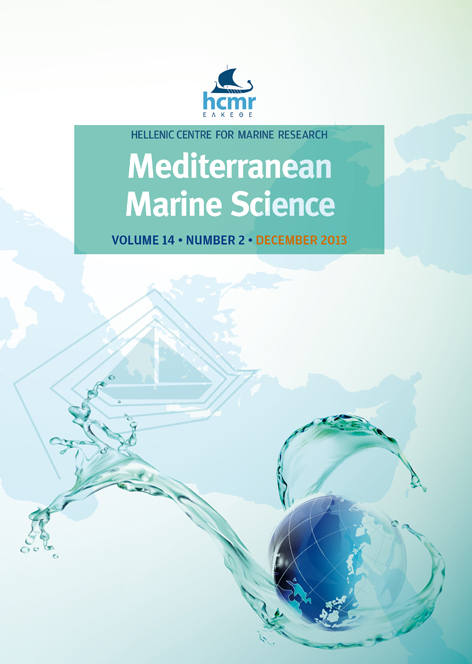Ecological characteristics of the invasive pufferfish Lagocephalus sceleratus (Gmelin, 1789) in the eastern Mediterranean Sea – a case study from Rhodes

Abstract
In this study, the ecological and societal impact of the invasive pufferfish Lagocephalus sceleratus on coastal habitats of an area of the eastern Mediterranean Sea (Rhodes Island) was investigated. Seasonal quantitative samplings in two common coastal habitats were used to investigate habitat use of different life-stages. Sandy areas were found to be highly important for the early life stages of L. sceleratus. In contrast, Posidonia oceanica habitats were mainly preferred by larger (> 29 cm) reproductive adults, not exceeding 64 cm. Lagocephalus sceleratus was found to feed on invertebrates and fish while size classification revealed a tendency for a diet shift with increased size. During early life stages, L. sceleratus inhabits sandy bottoms where it feeds on various invertebrates. The predominant molluscan species found in the diet of larger (> 20 cm) L. sceleratus individuals were the economically important Sepia officinalis and Octopus vulgaris. The size at which 50% of individuals reach maturity was estimated to 19 cm. With increased size, habitat shift to seagrass meadows most possibly occurs to meet both the increased demand in prey availability and requirement of appropriate spawning ground. Condition factor of L. sceleratus showed significantly higher values during summer than all other seasons and this was attributed to spawning season and increase in feeding. Societal impacts were alarming due to increased public attention concerning its lethal effects (presence of tetrodotoxin), if consumed. Its high abundance in the coastal fish communities of the studied area combined with ecological and societal impacts, clearly classify L. sceleratus a pest for fisheries and potential threat for biodiversity.
Article Details
- How to Cite
-
KALOGIROU, S. (2013). Ecological characteristics of the invasive pufferfish Lagocephalus sceleratus (Gmelin, 1789) in the eastern Mediterranean Sea – a case study from Rhodes. Mediterranean Marine Science, 14(2), 251–260. https://doi.org/10.12681/mms.364
- Issue
- Vol 14, No 2 (2013)
- Section
- Research Article
Authors who publish with this journal agree to the following terms:
- Authors retain copyright and grant the journal right of first publication with the work simultaneously licensed under a Creative Commons Attribution Non-Commercial License that allows others to share the work with an acknowledgement of the work's authorship and initial publication in this journal.
- Authors are able to enter into separate, additional contractual arrangements for the non-exclusive distribution of the journal's published version of the work (e.g. post it to an institutional repository or publish it in a book), with an acknowledgement of its initial publication in this journal.
- Authors are permitted and encouraged to post their work online (preferably in institutional repositories or on their website) prior to and during the submission process, as it can lead to productive exchanges, as well as earlier and greater citation of published work (See The Effect of Open Access).





